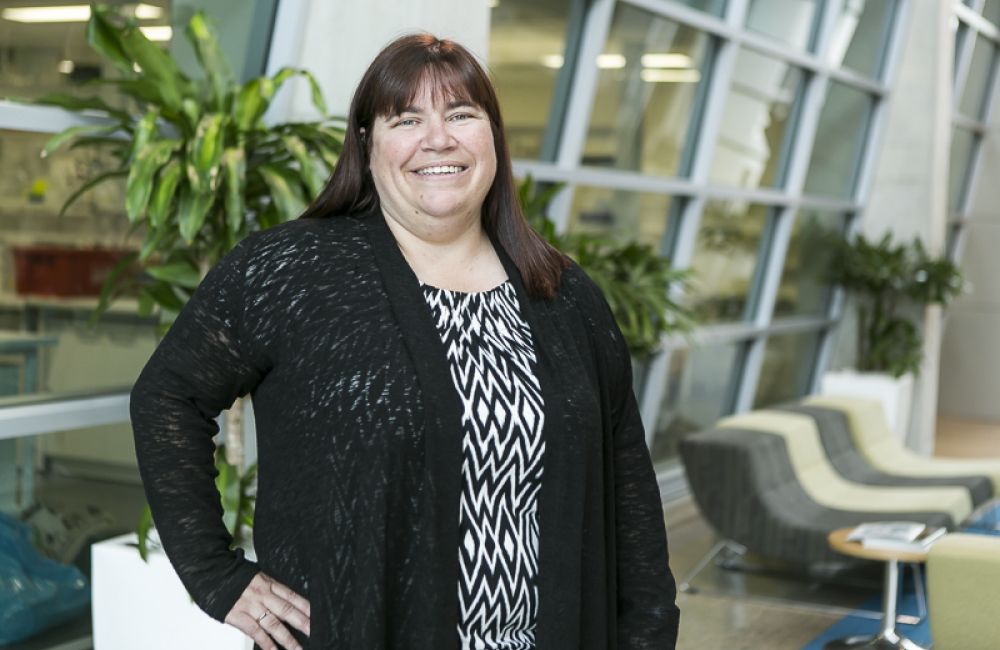Emily Hilder’s passion for research is inspired by the need to solve real-world issues. Her background is in analytical chemistry, and her work has been shaped by experiences in the US that followed the 2001 terrorist attacks.
Currently, she is the Director of the University of South Australia’s Future Industries Institute, which strives to transform industries through collaboration and technological disruptions.
Emily has never had a plan. Rather, she has developed diverse skills and been in the right places to seize opportunities as they arose. She grew up in Tasmania and showed early interest in arts and writing, but took a pragmatic approach to her career with a science degree, keeping her options broad. She found a love for chemistry, and an opportunity to do research led Emily to do honours.
Following this, she did a PhD in Analytical Chemistry to further expand her career options. Emily applied for a fellowship in Austria where she worked in a small department with little money for research. Her research had applications with plastics manufacturers and within the water industry, so whilst in Austria she began her engagement with industry.
An opportunity at the University of California in the US presented itself, and following her 12-month term in Austria, Emily arrived in the US only three weeks before September 11, 2001. This would have a profound impact on the focus of her work within chemical and biochemical warfare.
In 2003, she found herself at a crossroads, with positions offered to her in the US and Australia. Ultimately, she decided to move back to Australia, to give back to the country where she had been educated. She worked at the University of Tasmania in a fairly research intensive role, and seeking something more fulfilling, took an opportunity to become Associate Dean of Graduate Research. In this role, she developed a graduate certificate of research that ensured students developed generic research skills alongside specific skills within their PhD.
In 2006, Emily was approached to set up the Pfizer Analytical Research Centre, where she developed material that became commercially valuable. She became the medium between the organisation and
manufacturers, and successfully improved product quality. She established the ARC Training Centre for Analytical Separation Technologies with Trajan Scientific and Medical, at which time she was also Head of Chemistry. In these dual roles, she learnt to think strategically about how to manage both the Centre and the School.
Emily believes that her greatest challenge has been managing people at different stages of their career. She acknowledges that when looking after more than 200 people there will be issues, and she’s seen first-hand the impact of mental health in the workplace. She’s also faced the difficult task of telling people when they haven had a job anymore because of funding. On the other hand, Emily has also been challenged by attitudes of some who think they are more qualified than her, and the impact of hierarchy within the research and higher education sector.
As a mentor, Emily offers experience within academia and within industry. She's great at crossing that path and commercialising research outcomes. Emily has done informal and formal mentoring in the
past, and is really interested in what motivates and drives people to bring out their best.

